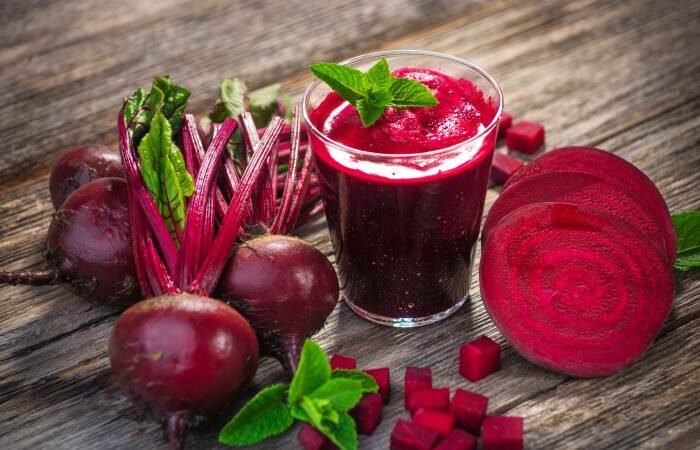Beet juice is high in nitrates and antioxidants, making it a superfood. Learn more about the astonishing health benefits of beet juice in this article, including greater athletic performance, increased energy, and decreased blood pressure.
1. Blood Pressure (BP) –
Beet juice may help to decrease your blood pressure. Nitrates, which are chemicals in beet juice that break down into nitric oxide in the circulation and aid in relaxing and enlarging blood vessels, are thought to be the cause.
2. Maintaining your weight –
Beet juice is practically fat-free and low in calories. It’s an excellent morning smoothie substitute. It will provide you with a nutritious and energy boost as you begin your day.
3. Potassium-rich source –
Beets are high in potassium, an electrolyte and mineral that supports proper neuron and muscle function. You may keep your potassium levels in check by drinking beet juice in moderation on occasion.
4. It is beneficial to the liver –
Antioxidant betaine may help prevent or reduce fatty liver deposits. Betaine may also protect your liver from toxins.
5.Can help to avoid cancer –
You may experience crimson or pinkish urine and faeces after eating beets. The condition called as beeturia is not dangerous.
They also have a healthy amount of manganese, which is important for bone formation, nutrient metabolism, brain function, and other processes. Nitrates appear to improve physical performance by enhancing the efficiency of mitochondria, which are responsible for generating energy in your cells. It’s important to remember that blood nitrate levels peak 2–3 hours after eating beets or drinking beet juice. It is therefore recommended that they be consumed a few hours prior to training or competition to maximise their potential effects.
If you currently have low blood pressure, drinking beet juice on a regular basis may increase your risk of acquiring it. Keep an eye out for it.
If you have calcium oxalate renal disease, avoid drinking beet juice. Beets are high in oxalates, which are naturally occurring chemicals that crystallise in your urine. It’s possible that they’ll result in stones.
Note: Before ingesting beetroot juice for any of the aforementioned reasons, it is recommended that you get checked for allergies.
- Hong Kong will launch ETFs for Bitcoin and Ethereum on April 30 - April 25, 2024
- WhatsApp is now enabling passkey features for iPhone users - April 25, 2024
- Real Estate 2024: 7 Pennsylvania Cities Where Price Dropping in Housing Market - April 25, 2024





